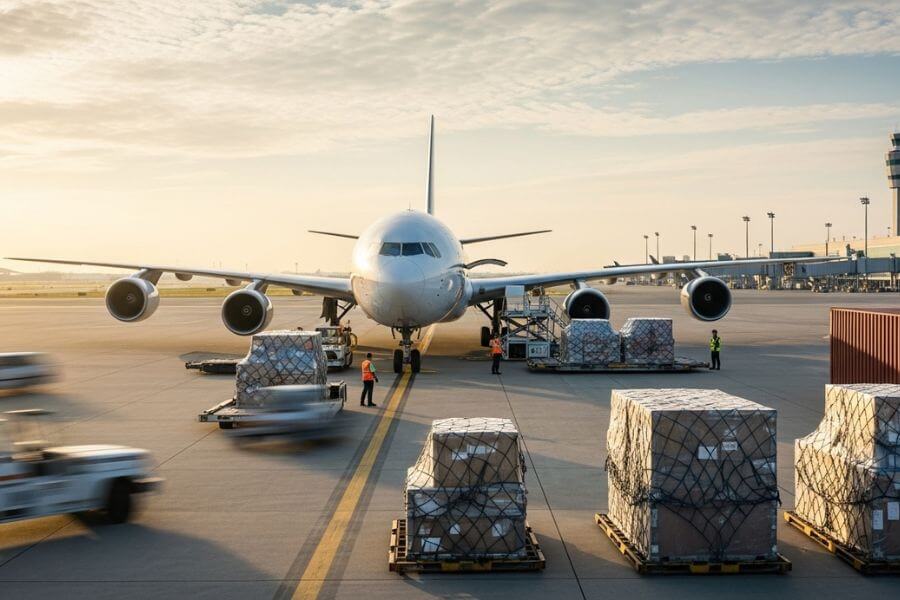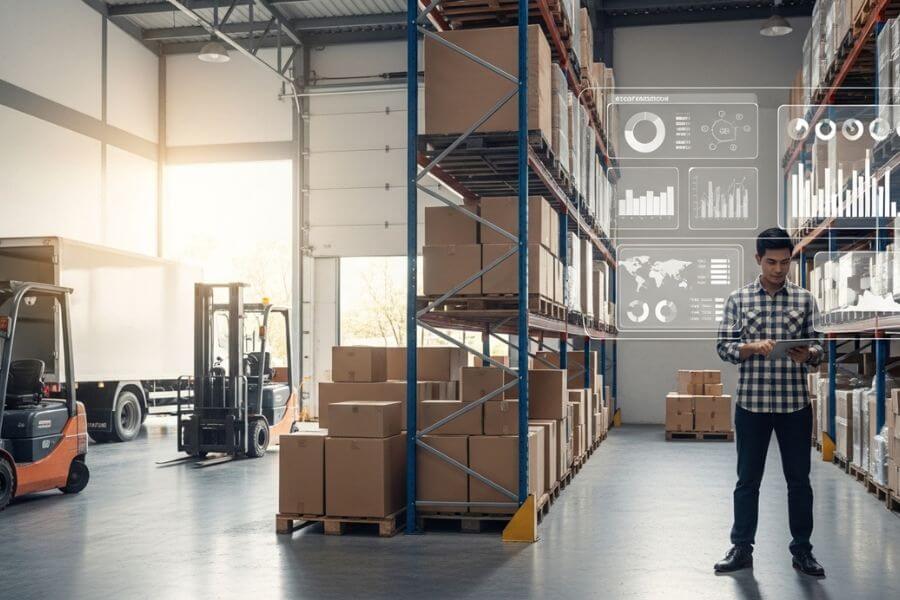Did you know that adopting a green approach as a logistics partner may not only strengthen your brand image with customers and suppliers but also improve your bottom line?
When it comes to logistics, green is the new black. In recent years, there has been an explosion of interest in sustainability – and for good reason. The logistics industry accounts for 24% of all global greenhouse gas emissions. However, business leaders who care about their company’s carbon footprint can also see how investing in sustainable logistics solutions will benefit them.
Adopting environmental-friendly practices has been a gradual but steady trend in the logistics sector recently. Projects of this kind aim to lessen the destructive effects of logistical operations on the environment. Newcomers to the logistics business would do well to familiarize themselves with this idea and brace themselves for the best possible outcome.
Let us delve into the benefits of green logistics and why embracing it is the right move for you.
But What is "Green Logistics"?
For businesses, “green logistics” is a movement toward more eco-friendly ways of doing business. Historically, logistics operations have been centered on things like clients, sales, income, and financial security. However, conventional logistics procedures have never considered the ecological consequences of their practices.
Things used to be one way, but thanks to green logistics strategies today, they’ve started changing for the better. The notion of environmental-friendly logistics not only favors environmental protection but also boosts corporate sales in the logistics sector.
There will be a clear symmetry between the economy and the environment if green logistics solutions are used effectively. Businesses are increasingly adopting greener logistical practices as a result, and adjusting their corporate stance on environmental issues.
So, Why Does Green Logistics Matter?
There are a few goals that should be accomplished by mandating green logistics operations.
1. Carbon footprint measurement & reduction
Using sustainable logistics strategies, businesses will be aware of the environmental impact of their shipment activities. Thus, businesses may ease their way toward reducing their environmental impact. The EN-16258:2013 International Standard contains the preferred and most widely-used techniques for monitoring greenhouse gas emissions and energy consumption for this purpose.
2. Eliminating or drastically reducing all sources of pollution
Air, water, noise, and soil pollution reduction or eradication is a primary objective of green logistics operations. Major changes are being made in the transportation industry, particularly in terms of how things are run.
3. Reduce, reuse, and recycle
When it comes to packaging, green logistics emphasizes reusing and recycling existing containers.
4. Save money in the supply chain
When businesses adopt green logistics practices, they can expect to have less wasteful operations and a better brand image. This also means that less money will be spent in the long run on gasoline, packaging, and labor if environmental-friendly logistics techniques are used. Sustainable logistics methods become embedded into the company’s supply chain in this way.
Gains from a Greener Logistics Approach
Unrestrained resource use is increasingly being monitored for its potential environmental effects. The term “green logistics” refers to one of several effective movements aiming to mitigate this growing environmental impact. Green logistics, which emphasizes environmental responsibility, offers a number of advantages that beginners in the field should be aware of.
1. Remove sources of greenhouse gases
Reduced emissions of greenhouse gases are the most obvious advantage. Those that operate within this sector are now cutting down on energy use and improving transport operations to lessen their impact on the environment.
2. Reduce waste
Another benefit of adopting environmental-friendly logistics is improved waste management. Route planners are specialized software used by businesses to digitize formerly paper-based processes, such as documenting, archiving, and signing off on important documents. As a result of these policies, less paper is wasted since traditional record-keeping methods are no longer favored.
3. Increased consumer awareness
Today’s customers are increasingly considering how they may help reduce their impact on the environment. Consequently, they are on the lookout for businesses that share their commitment to preserving the planet’s resources.
Customers may learn more about how they can contribute to protecting the environment when brands include environmental principles in their everyday business practices. They may also reach out to others who aren’t currently concerned about environmental damage and convince them to take action.
Tips for Making the Change to Eco-Friendly Logistics
To make the transition to more environmental-friendly logistical practices, businesses can take certain steps.
1. Systematic optimization of travel routes
Get the basics in order! Previously, route optimization was a manual process performed on paper. In addition to producing a lot of unnecessary paper waste, it was also making it more expensive to operate delivery trucks. The routes taken manually took more time and were less efficient. For the same number of deliveries, the trucks had to go farther.
Using automated route planning tools may help fix this shortcoming. Assign numerous locations to the map and generate optimum delivery routes that provide the shortest option for them to conserve fuel and lower carbon emissions.
2. Promote environmentally-responsible modes of transport
A logistics company’s efforts to become sustainable might take a hit from on-demand and same-day deliveries. Why? Because on-demand delivery vans sometimes don’t set out for deliveries at full capacity, which drives up prices for the company.
If you provide a discount, your customers will understand if their purchase is delayed somewhat. If you give them a discount or special deal in exchange for selecting a green delivery option, chances are that most of them will take advantage of it.
3. Reduce your carbon footprint & operating costs
Reducing your carbon footprint is the first benefit of embracing green logistics. It will help your company reduce its overall impact on the environment by reducing the amount of greenhouse gases released into the atmosphere.
You can calculate your carbon footprint by looking at your energy consumption and the fuel burned to transport your products to market. You may then compare your footprint with global and industry-specific benchmarks as this will help you take action to reduce your carbon footprint. For example, if your company is shipping products on the road, you can reduce the emissions by switching to rail transportation as an alternative.
A green approach to logistics will also help you to reduce your operating costs. By choosing eco-friendly transportation modes, you can reduce costs like fuel consumptions, vehicle maintenance, and so forth.
4. Show your commitment to sustainability
By embracing green logistics, you’ll be able to show your customers and stakeholders that you care about the environment.
Why is this important? It is estimated that 42% of customers are willing to pay more for products and services from brands that are sustainable. This means that by adopting green logistics, you can show your customers that you care about the environment and that you are making a genuine commitment to sustainability.
By increasing transparency and demonstrating your commitment to sustainability to the public, your business will be able to win the trust of your customers which may help boost your sales and revenue to grow your business.
Conclusion
Logistics and sustainability are a match made in heaven. Implementing green logistics will allow you to reduce your carbon footprint and operating costs, as well as build a better supply chain, show your commitment to sustainability, and strengthen your brand with customers and employees.
By embracing green logistics, you can make a real difference in the world and help to protect the environment for future generations. At Logos Logistics, we strive to help you minimize inefficiencies, improve transparency, and make proactive supply chain decisions. As a SmartWay Transport Partner, Logos enables you to lower your fuel consumption, reduce your emissions, and save money by applying best practices in the freight supply chain.
Please feel free to get in touch with our experts today!











